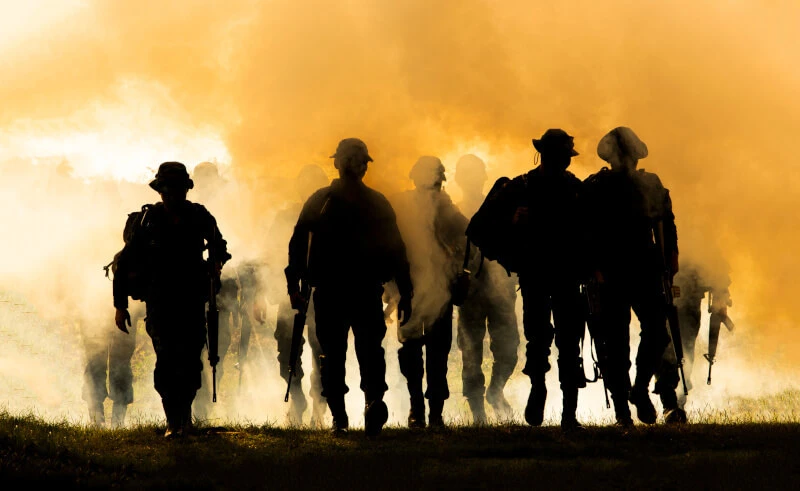As the war trumpet blasted across the European plains, everything changed drastically. The Scottish whisky sector was not spared the upheaval. The Scotch whisky industry was severely damaged during the Great War, often known as World War I. These wounds are still visible today. In honor of the countless lives lost during this time, I’d want to take this Remembrance Sunday to examine how the war altered a sector of the economy that is vital to Scotland’s identity and history.
The War’s Devastating Effect on Scotland’s Whisky Trade
The Scotch whisky industry, like many British industries, was hit hard by the war. Most distilleries were destroyed by a combination of factors, such as regulatory restraints and a lack of available workers. The once-thriving industry was caught in the crossfire, resulting in the closure of several businesses, some of which never reopened.
Implications of the Central Alcoholic Beverage Control Board
The British government established The Central Liquor Control Board a year into the war to regulate the beverage business. This measure, which fell short of full nationalization, immediately reduced the availability of alcoholic beverages in areas near major munitions industries in Carlisle and Invergordon. This action was taken to ensure that workers in potentially dangerous situations would remain sober.
As the conflict continued, the board’s authority grew and its regulations became increasingly comprehensive. The board banned malt distilling in 1917 to preserve the limited amount of barley used to make whisky. The whisky industry entered a dark period, with the last distilleries being shut down as a result of this move. A small number of them persisted, earning permission to sell industrial alcohol and grain whisky to the armed forces.
The impact of World War I on the Scotch whisky industry is multi-faceted and extends beyond the immediate concerns of production and workforce depletion. A significant aspect that needs to be explored is how the war may have contributed to the prohibition movement, both in the UK and internationally, particularly in the United States.
World War I and the Rising Temperance Movement
The war acted as a catalyst for temperance movements around the world, with governments recognizing the need to conserve resources and maintain an efficient workforce. In the UK, this resulted in the formation of the Central Liquor Control Board, which implemented restrictions on the sale and production of alcohol.
- Resource Allocation and Prohibition: During the war, the need for resources, such as Barley, for food production took precedence over their use in whisky production. The decision to outlaw malt distillation in 1917 was a clear manifestation of this priority shift. This not only led to the closure of distilleries but set a precedent where government intervention in the alcohol industry became more acceptable.
- Social and Moral Factors: The war also brought about a heightened sense of social and moral responsibility. Governments and various social groups started to view excessive alcohol consumption as a vice that needed to be controlled. In the U.S., this sentiment played a significant role in the passage of the 18th Amendment, leading to the prohibition era. The wartime needs for efficiency, moral integrity, and social welfare served to strengthen the prohibitionist arguments.
- Economic Considerations: The economic burdens of the war, coupled with the need for a sober and efficient workforce, especially in munition factories, made controlling alcohol consumption a strategic necessity. The restrictions placed on the industry were as much about economics as they were about social welfare.
A War-Reduced Workforce

The board’s intervention came too late for several distilleries that had already closed due to the strain of a declining staff. Many workers in the business sector enrolled voluntarily to support the war effort after being encouraged to do so by their superiors.
Companies like The Distillery Company (now called Diageo) and Arthur Bell & Sons took commendable measures to aid their military personnel. For instance, in addition to regular wages, The Distillery Company provided full pay to distillery administrators and half pay to workers. Arthur Bell & Sons’s generosity in rewarding staff with bottles of whisky is commemorated to this day in the company’s now-iconic “Afore Ye Go” tagline.
Arthur Bell & Sons, a prominent name in the Scotch whisky industry, displayed a noteworthy commitment to supporting military personnel during World War I. Their efforts went beyond the simple endorsement of enlistment and reached a broader social and economic context.
- Wage Support and Economic Security: Arthur Bell & Sons was instrumental in ensuring that their employees who enlisted did not suffer financially. The company’s decision to offer full pay to distillery officials and half-pay to workmen, in addition to their military wages, was a significant step. This support not only boosted morale among the employees but provided financial security to families during an uncertain time. It allowed enlisted employees to focus on their military duties without the added worry of financial hardship back home.
- Symbolic Support Through Branding: The company’s decision to gift bottles to their workers joining the war effort may seem like a simple gesture, but it carried deeper symbolic value. This practice resonated with the public sentiment of the time and became part of the company’s branding. The “Afore Ye Go” slogan that emerged from this practice encapsulated a sense of camaraderie and national pride, connecting the brand with a wider cultural narrative.
- Post-war Employment and Reintegration Support: While not explicitly mentioned earlier, companies like Arthur Bell & Sons likely faced challenges in reintegrating returning soldiers into the workforce. The continuity of wage support during the war would have fostered a sense of loyalty and connection, potentially easing the transition back into civilian life for many servicemen. Though detailed records may be scarce, it would be reasonable to infer that supportive employers played a vital role in the difficult post-war adjustment period.
Revival and Postwar Reconstruction
Even after the Armistice in 1918, the whisky business was struggling. Although wartime regulations were repealed after a year, the business was still affected for years by set pricing structures.
Those who made it back from the horrors of war found a devastated economy, destroyed jobs, and gloomy futures. More than 10% of the people living in the Scottish Highlands left their homes in the years after the Great Depression as a direct result of the economy. The whisky business, however, showed remarkable fortitude and perseverance, and it eventually recovered. Many distilleries in Scotland have survived and even thrived because of the pioneering mindset of the country’s distillers.
On this day dedicated to remembering the past, we remember those we have lost sadly and pay tribute to the irreplaceable skills and abilities they brought with them. It’s worth pausing to think about how the history of Scotch whisky may have been different if a whole generation of skilled distillers hadn’t been lost.

